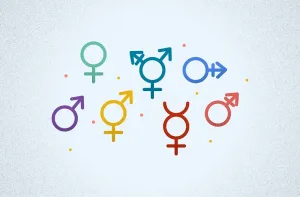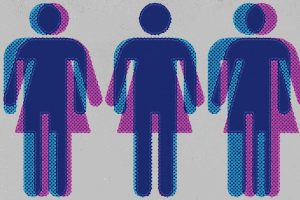Sexual identity is a complex concept, that encompasses how individuals perceive themselves and are perceived by others. That is in terms of their sexual orientation, behaviours, and desires. It includes categories such as heterosexual, homosexual, bisexual, pansexual, asexual, and more. Each of these identities represents a unique experience and perspective on love, attraction, and relationships.

Common Issues in Sexual Identity
- Self-Acceptance and Internal Stigma Many individuals struggle with accepting their sexual identity, especially if it doesn’t conform to societal norms. Internal stigma can lead to feelings of shame, guilt, and confusion, often amplified by a lack of supportive environments or role models. Self-acceptance is a critical first step in navigating sexual identity, but it is often a challenging journey.
- External Stigma and Discrimination Discrimination based on sexual identity is pervasive in many parts of the world. From workplace harassment to social ostracization and even legal discrimination, individuals with non-heteronormative identities frequently face barriers that impact their mental and physical well-being. Addressing these issues requires systemic change and a collective effort to foster a culture of acceptance.
- Coming Out and Disclosure The process of coming out, or disclosing one’s sexual identity, can be fraught with anxiety and fear of rejection. This is particularly true in environments that are not supportive of LGBTQ+ identities. The decision to come out is highly personal and can vary depending on individual circumstances, including cultural, familial, and social dynamics.
- Mental Health Challenges The intersection of sexual identity and mental health is significant. Individuals who experience marginalization due to their sexual identity are at higher risk for mental health issues such as depression, anxiety, and suicidal ideation. Access to supportive mental health resources that affirm and respect sexual identity is crucial for overall well-being.
- Intersectionality Sexual identity does not exist in a vacuum. It intersects with other aspects of identity, such as race, gender, socioeconomic status, and more. These intersections can compound the challenges faced by individuals, as they navigate not just one, but multiple layers of discrimination and marginalization.
The Importance of Inclusive Spaces
Creating inclusive spaces is vital for the well-being of individuals with diverse sexual identities. These spaces can be physical, such as LGBTQ+ community groups, online forums and support groups. Inclusive spaces provide a sense of belonging, support, and empowerment, allowing individuals to express themselves authentically without fear of judgment or discrimination.
Steps Towards Greater Inclusivity
- Education and Awareness Promoting education about sexual identity and related issues is essential for fostering understanding and empathy. Schools, workplaces, and communities can benefit from comprehensive education programs that cover the spectrum of sexual identities and highlight the importance of respect and inclusivity.
- Supportive Policies and Legislation Advocating for policies that protect the rights of individuals with diverse sexual identities is critical. This includes anti-discrimination laws, healthcare access, and legal recognition of same-sex relationships and non-binary identities. Legal frameworks that support sexual identity diversity contribute to a more just and equitable society.
- Visible Representation Representation matters. Seeing oneself reflected in media, politics, and various aspects of public life can affirm one’s identity and provide a sense of validation. Ensuring that diverse sexual identities are represented in positive and realistic ways helps to challenge stereotypes and promote acceptance.
- Empathy and Allyship Allies play a crucial role in supporting individuals with diverse sexual identities. By listening, learning, and advocating for LGBTQ+ rights, allies can help create a more inclusive and supportive environment. Empathy, open-mindedness, and a commitment to standing against discrimination are key components of effective allyship.
Moving Forward
The journey towards understanding and accepting sexual identity is deeply personal and varies for each individual. As society continues to progress, it is our collective responsibility to foster an environment where all individuals can live authentically and without fear of discrimination or judgment. By embracing diversity and promoting inclusivity, we can create a world that celebrates the richness of human experience in all its forms.
Useful websites
Mental Health Foundation – body image, sexual orientation and gender identity





